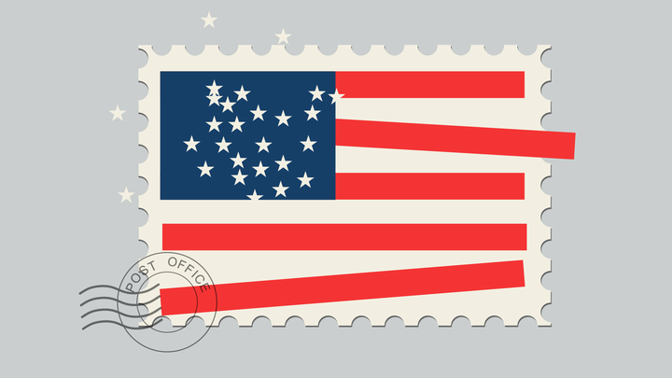Every weekday evening, our editors guide you through the biggest stories of the day, help you discover new ideas, and surprise you with moments of delight. Subscribe to get this delivered to your inbox.

Wisconsin is a warning. Today, the state’s voters are headed to the polls despite local and federal health guidelines about remaining in place. A last-minute tussle over mail-in ballots ended in a Supreme Court decision that overturned a proposal to give residents an extra week to vote by post.
The scuffle in the Midwest may be a harbinger of what’s to come in the fall, as the nation’s biggest contest, the 2020 presidential election, unfolds during a pandemic. Vote by mail is already emerging as a partisan flash point.
Below, six experts take stock of what this outbreak means for U.S. voters—and the candidates vying for their affections:
The Supreme Court made accommodations for itself—but not for voters.
“The Court’s indifference to Wisconsin voters is brazenly ironic,” Leah Litman, an assistant professor at the University of Michigan Law School, argues.
Congress should pass legislation enabling national vote by mail.
“If serious, systematic problems with voting by mail existed, they would have already presented in Washington, Oregon, and California, where the option is available to a combined 50 million residents,” Ronald J. Krotoszynski Jr., who teaches at the University of Alabama School of Law, argues.
States need to fix voting rules before the fall.
Vote by mail is an important part of the solution, but more needs to be done, Marc Elias, a lawyer and the chair of Perkins Coie’s Political Law Group, writes.
The coronavirus killed the Democrats’ policy primary.
“The Democratic presidential race was the thickest any race had ever been on policy,” our politics staff writer Edward-Isaac Dovere writes. “Thanks to the coronavirus, that’s all gone.”
Meanwhile, President Donald Trump has “embraced the bully pulpit.”
And “it’s potentially more valuable than routine campaigning,” our White House reporter Peter Nicholas writes. “As the election approaches, he may be more and more tempted to use it for his own purposes.”
He could even use this as an opportunity to steal the election.
Jeffrey Davis, a political-science professor the University of Maryland, Baltimore County, makes that case: “This is not a president who cares about the sanctity of the electoral process.”

What to read if … you can’t stop thinking about Anthony Fauci:
“What is it about a crisis that can turn even a 79-year-old immunologist into a heartthrob?”
What to read if … you just want practical advice:
One question, answered: Why does the president keep pushing a malaria drug as a remedy for COVID-19?
The controversy appears to have started two weeks ago, when French doctors “published a provocative observation in a microbiology journal,” our health staff writer James Hamblin reports. Though the medical community is clear that clinical trials are needed before anything can be said about the safety and effectiveness of the drug in treating coronavirus cases, Trump is actively encouraging people to take it.
“This brazen dispensation of medical advice from the president is dangerous in ways beyond the potential harm of the drug itself,” James writes.
Tonight’s Atlantic-approved quarantine activity:
Tour the arrival of spring—and all the flowers, sunshine, and happy dogs that come with it.
What to read if … you’d like to read about something—anything—other than the coronavirus:
Tiger King is a moral failure, our staff writer Sophie Gilbert argues, “the TV equivalent of licking the subway pole.”
The series is a carnival sideshow not unlike Joe Exotic’s central-Oklahoma park: You see the sign on the side of the road and you stop, not because you want to, necessarily, but because it’s there.
In that sense, Tiger King is also the latest and most acute iteration of a Netflix trend toward extreme storytelling, the more unfathomable and ethically dubious, the better.
View all of our stories related to the coronavirus outbreak here. Let us know if you have specific questions about the virus—or if you have a personal experience you’d like to share with us.
This email was written by Caroline Mimbs Nyce, with help from Isabel Fattal and edited by Shan Wang. Sign yourself up for The Daily here

No comments:
Post a Comment